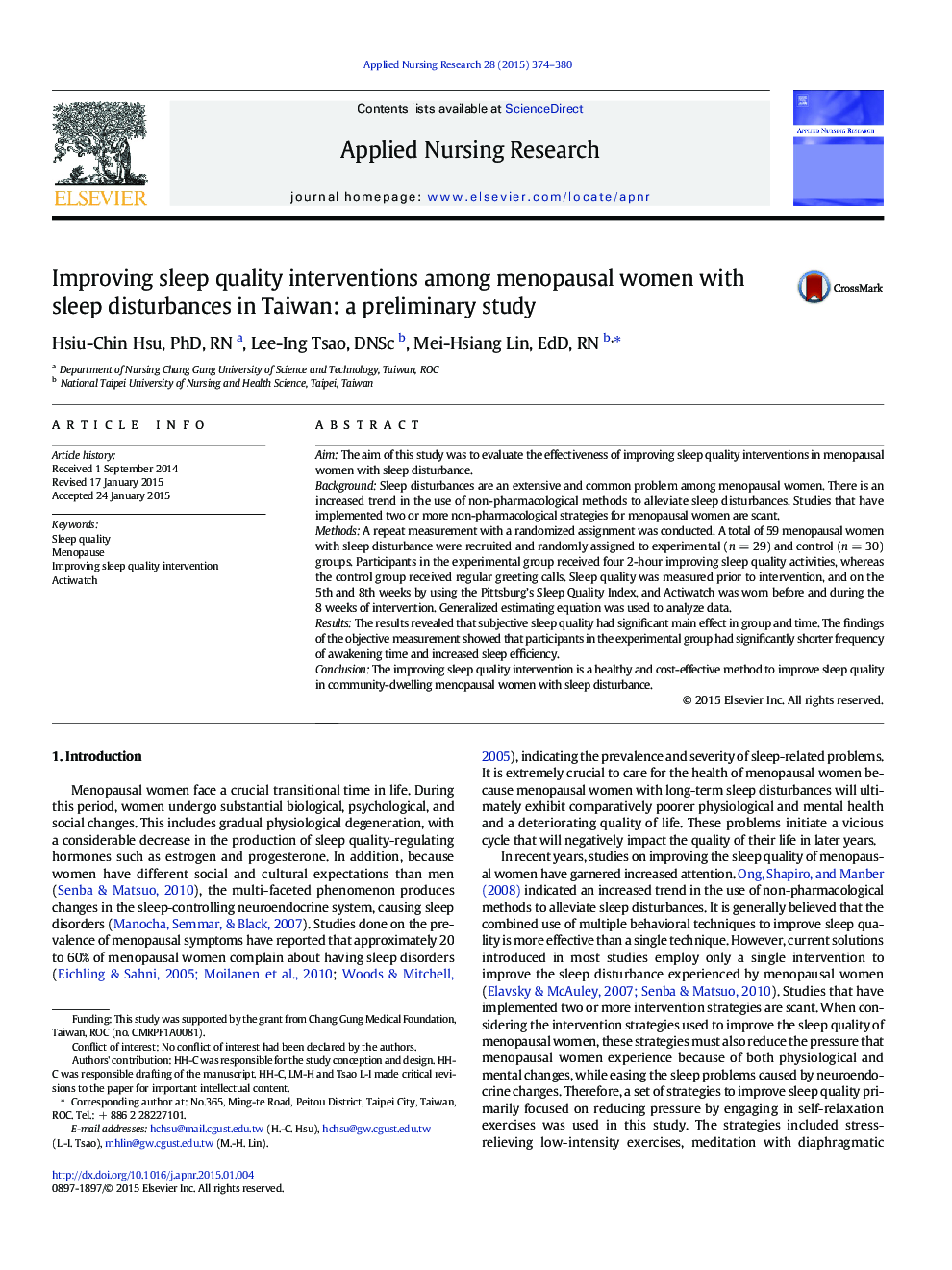| Article ID | Journal | Published Year | Pages | File Type |
|---|---|---|---|---|
| 2644507 | Applied Nursing Research | 2015 | 7 Pages |
AimThe aim of this study was to evaluate the effectiveness of improving sleep quality interventions in menopausal women with sleep disturbance.BackgroundSleep disturbances are an extensive and common problem among menopausal women. There is an increased trend in the use of non-pharmacological methods to alleviate sleep disturbances. Studies that have implemented two or more non-pharmacological strategies for menopausal women are scant.MethodsA repeat measurement with a randomized assignment was conducted. A total of 59 menopausal women with sleep disturbance were recruited and randomly assigned to experimental (n = 29) and control (n = 30) groups. Participants in the experimental group received four 2-hour improving sleep quality activities, whereas the control group received regular greeting calls. Sleep quality was measured prior to intervention, and on the 5th and 8th weeks by using the Pittsburg’s Sleep Quality Index, and Actiwatch was worn before and during the 8 weeks of intervention. Generalized estimating equation was used to analyze data.ResultsThe results revealed that subjective sleep quality had significant main effect in group and time. The findings of the objective measurement showed that participants in the experimental group had significantly shorter frequency of awakening time and increased sleep efficiency.ConclusionThe improving sleep quality intervention is a healthy and cost-effective method to improve sleep quality in community-dwelling menopausal women with sleep disturbance.
